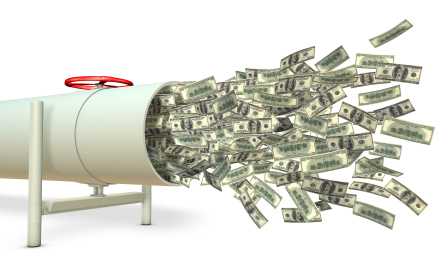There were three winners in the CNBC debate: Herman Cain, Mitt Romney, and Newt Gingrich. Gov. Rick Perry was the obvious loser because of his memory lapse.
The guy with the toughest job on Wednesday night was Herman Cain, who has been hammered by sexual-harassment charges. He needed a strong performance to put him back on message with his 9-9-9 tax plan and pro-business, free-enterprise views. I give him first prize, simply because he performed so well. He had the most to gain and the most to lose. He gained.
How these sex-harassment charges play out remains to be seen. And how much damage they will do to the Cain campaign is an unknown. But it’s noteworthy that a new Rasmussen poll for the Florida Republican primary shows Cain at 30 percent, Romney at 24 percent, and Gingrich at 19 percent. At the moment, Cain is still at or near the top of the pack. So far, it’s hard to find any Republican-voter migration away from Cain.
But the more interesting story might be Newt Gingrich, who has surged into third place. When I interviewed him on Tuesday, the night before the debate, I asked him about 1 percent versus 99 percent, the class-warfare argument being propagated by President Obama and the Wall Street protesters. Gingrich replied, “I am for 100 percent. I think this idea of 99 percent and 1 percent is grotesque European-socialist class-warfare bologna.” (Italics mine.) No one puts it that well.
And during the debate Gingrich expanded on that theme. In a response to a question on the importance of profits in the economy, he bluntly complained that he has heard no one in the media ask: “Who’s going to pay for the park you’re occupying if there are no businesses making a profit?”
And his historical references to Henry Ford and Bill Gates working in garages to invent their breakthrough technologies — were they part of the 1 percent or the 99 percent? — were great examples of just how stupid and un-American class warfare really is.
But I don’t think Gingrich or Romney are correct to back temporary payroll tax cuts, especially since Obama would pay for them with permanent tax hikes. CNBC’s Rick Santelli correctly noted that those tax cuts are blowing a huge hole in Social Security. And I would add that they have virtually no incentive effect for job creation. So automatically endorsing them makes no sense. (Michele Bachmann won that round by opposing them.)
I also think Romney desperately needs a true pro-growth tax-reform plan. Cain has 9-9-9, Perry has a 20-20 optional flat tax, and Gingrich has a 15 percent optional flat tax. Romney’s new budget and entitlement-reform plan is excellent. But he has not entered the flat-tax competition that’s moving the GOP in the right direction on economic-growth incentives.
Romney talked about helping the middle class. Fine. But his proposed elimination of the capital-gains tax for couples making less than $250,000 is not something that directly bears on $75,000-a-year earners who have very few capital gains. There’s just a little bit of rich-people class-warfare pandering in that.
At a minimum, middle-income taxpayers should be dropped to the 15 percent bracket from the 25 and 28 percent brackets. In fact, all the brackets should be lowered, in much the way Sen. Pat Toomey is trying to shake up the supercommittee deficit talks by flattening the rates and putting clear limits on individual deductions for upper-income taxpayers. That’s a revenue-positive, pro-growth idea that Romney should consider if he’s unwilling to go the flat-tax route.
The good news is that the GOP field is united around free-market principles, and united against government bailouts for housing, autos, energy, and banks. I was, however, disappointed with all the candidates’ responses to the financial crisis in Italy, in particular, and Europe overall.
No one wants to bail out Italy or Greece or Europe. And yes, the GOP candidates did provide examples of why America must change course to avoid the European disease brought on by social-welfare entitlements.
But the fact remains that U.S. stock market investors are very worried about a banking-contagion threat in a worst-case European scenario. If that were to happen, it would absolutely spread to the United States. And if that were to happen, we’d need some strategic contingency planning about the proper roles of the Federal Reserve, FDIC, and Treasury. It’s not just bailouts or nothing. I think the Republican field has to think about this in order to connect with the investor class. Remember, investors are the most likely to vote in presidential elections.
No one wants more TARP bailouts. But no one wants a financial catastrophe that could sink our economy either — even if a flat tax became law.

COMMENTS
Please let us know if you're having issues with commenting.